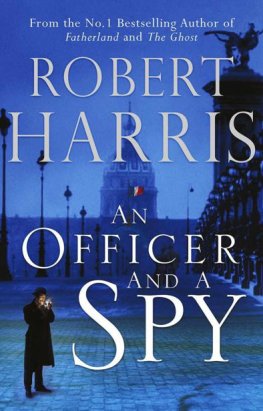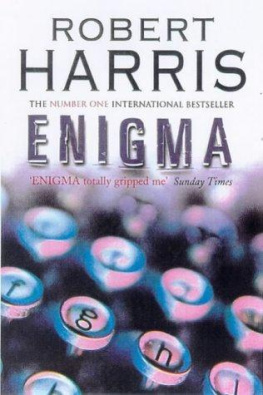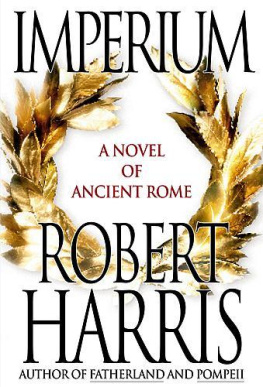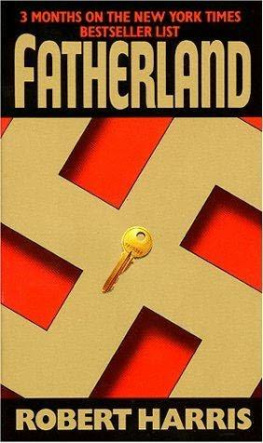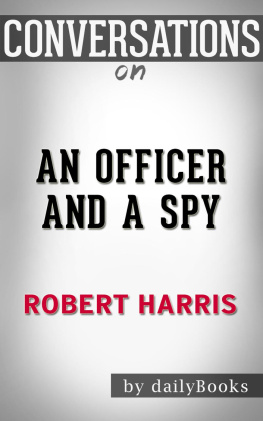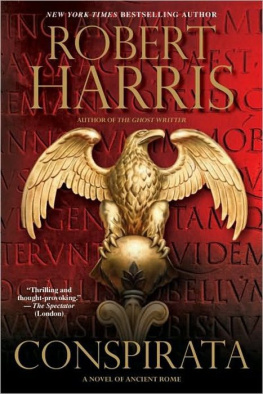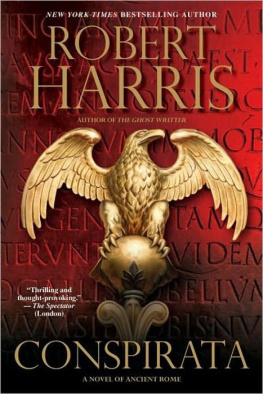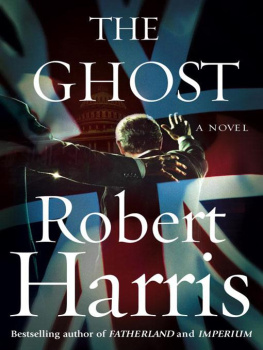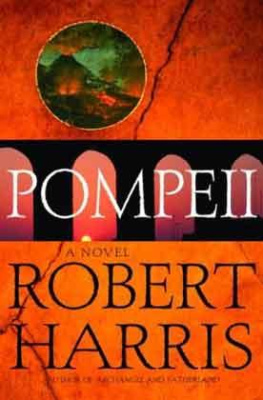Robert Harris - An Officer and a Spy
Here you can read online Robert Harris - An Officer and a Spy full text of the book (entire story) in english for free. Download pdf and epub, get meaning, cover and reviews about this ebook. genre: Detective and thriller. Description of the work, (preface) as well as reviews are available. Best literature library LitArk.com created for fans of good reading and offers a wide selection of genres:
Romance novel
Science fiction
Adventure
Detective
Science
History
Home and family
Prose
Art
Politics
Computer
Non-fiction
Religion
Business
Children
Humor
Choose a favorite category and find really read worthwhile books. Enjoy immersion in the world of imagination, feel the emotions of the characters or learn something new for yourself, make an fascinating discovery.
- Book:An Officer and a Spy
- Author:
- Genre:
- Rating:3 / 5
- Favourites:Add to favourites
- Your mark:
- 60
- 1
- 2
- 3
- 4
- 5
An Officer and a Spy: summary, description and annotation
We offer to read an annotation, description, summary or preface (depends on what the author of the book "An Officer and a Spy" wrote himself). If you haven't found the necessary information about the book — write in the comments, we will try to find it.
An Officer and a Spy — read online for free the complete book (whole text) full work
Below is the text of the book, divided by pages. System saving the place of the last page read, allows you to conveniently read the book "An Officer and a Spy" online for free, without having to search again every time where you left off. Put a bookmark, and you can go to the page where you finished reading at any time.
Font size:
Interval:
Bookmark:
Robert Harris
An Officer and a Spy
PART ONE
1
Major Picquart to see the Minister of War. .
The sentry on the rue Saint-Dominique steps out of his box to open the gate and I run through a whirl of snow across the windy courtyard into the warm lobby of the htel de Brienne, where a sleek young captain of the Republican Guard rises to salute me. I repeat, with greater urgency: Major Picquart to see the Minister of War. .!
We march in step, the captain leading, over the black and white marble of the ministers official residence, up the curving staircase, past suits of silver armour from the time of Louis the Sun King, past that atrocious piece of Imperial kitsch, Davids Napoleon Crossing the Alps at the Col du Grand-Saint-Bernard, until we reach the first floor, where we halt beside a window overlooking the grounds and the captain goes off to announce my arrival, leaving me alone for a few moments to contemplate something rare and beautiful: a garden made silent by snow in the centre of a city on a winters morning. Even the yellow electric lights in the War Ministry, shimmering through the gauzy trees, have a quality of magic.
General Mercier is waiting for you, Major.
The ministers office is huge and ornately panelled in duck-egg blue, with a double balcony over the whitened lawn. Two elderly men in black uniforms, the most senior officers in the Ministry of War, stand warming the backs of their legs against the open fire. One is General Raoul le Mouton de Boisdeffre, Chief of the General Staff, expert in all things Russian, architect of our burgeoning alliance with the new tsar, who has spent so much time with the Imperial court he has begun to look like a stiff-whiskered Russian count. The other, slightly older at sixty, is his superior: the Minister of War himself, General Auguste Mercier.
I march to the middle of the carpet and salute.
Mercier has an oddly creased and immobile face, like a leather mask. Occasionally I have the odd illusion that another man is watching me through its narrow eye-slits. He says in his quiet voice, Well, Major Picquart, that didnt take long. What time did it finish?
Half an hour ago, General.
So it really is all over?
I nod. Its over.
And so it begins.
Come and sit down by the fire, orders the minister. He speaks very quietly, as he always does. He indicates a gilt chair. Pull it up. Take off your coat. Tell us everything that happened.
He sits poised in expectation on the edge of his seat: his body bent forwards, his hands clasped, his forearms resting on his knees. Protocol has prevented him from attending the mornings spectacle in person. He is in the position of an impresario who has missed his own show. He hungers for details: insights, observations, colour.
What was the mood on the streets first thing?
I would say the mood was. . expectant.
I describe how I left my apartment in the pre-dawn darkness to walk to the cole Militaire, and how the streets, to begin with at least, were unusually quiet, it being a Saturday The Jewish Sabbath, Mercier interrupts me, with a faint smile and also freezing cold. In fact, although I do not mention this, as I passed along the gloomy pavements of the rue Boissire and the avenue du Trocadro, I began to wonder if the ministers great production might turn out to be a flop. But then I reached the pont de lAlma and saw the shadowy crowd pouring across the dark waters of the Seine, and that was when I realised what Mercier must have known all along: that the human impulse to watch anothers humiliation will always prove sufficient insulation against even the bitterest cold.
I joined the multitude as they streamed southwards, over the river and down the avenue Bosquet such a density of humanity that they spilled off the wooden pavements and into the street. They reminded me of a racecourse crowd there was the same sense of shared anticipation, of the common pursuit of a classless pleasure. Newspaper vendors threaded back and forth selling the mornings editions. An aroma of roasting chestnuts rose from the braziers on the roadside.
At the bottom of the avenue I broke away and crossed over to the cole Militaire, where until a year before I had served as professor of topography. The crowd streamed on past me towards the official assembly point in the place de Fontenoy. It was beginning to get light. The cole rang with the sound of drums and bugles, hooves and curses, shouted orders, the tramp of boots. Each of the nine infantry regiments quartered in Paris had been ordered to send two companies to witness the ceremony, one composed of experienced men, the other of new recruits whose moral fibre, Mercier felt, would benefit by this example. As I passed through the grand salons and entered the cour Morland, they were already mustering in their thousands on the frozen mud.
I have never attended a public execution, have never tasted that particular atmosphere, but I imagine it must feel something like the cole did that morning. The vastness of the cour Morland provided an appropriate stage for a grand spectacle. In the distance, beyond the railings, in the semicircle of the place de Fontenoy, a great murmuring sea of pink faces stirred behind a line of black-uniformed gendarmes. Every centimetre of space was filled. People were standing on benches and on the tops of carriages and omnibuses; they were sitting in the branches of the trees; one man had even managed to scale the pinnacle of the 1870 war memorial.
Mercier, drinking all this up, asks me, So how many were present, would you estimate?
The Prfecture of Police assured me twenty thousand.
Really? The minister looks less impressed than I had expected. You know that I originally wanted to hold the ceremony at Longchamps? The racetrack has a capacity of fifty thousand.
Boisdeffre says flatteringly, And you would have filled it, Minister, by the sound of it.
Of course we would have filled it! But the Ministry of the Interior maintained there was risk of public disorder. Whereas I say: the greater the crowd, the stronger the lesson.
Still, twenty thousand seemed plenty to me. The noise of the crowd was subdued but ominous, like the breathing of some powerful animal, temporarily quiescent but which could turn dangerous in an instant. Just before eight, an escort of cavalry appeared, trotting along the front of the crowd, and suddenly the beast began to stir, for between the riders could be glimpsed a black prison wagon drawn by four horses. A wave of jeers swelled and rolled over it. The cortge slowed, a gate was opened, and the vehicle and its guard clattered over the cobbles into the cole.
As I watched it disappear into an inner courtyard, a man standing near to me said, Observe, Major Picquart: the Romans fed Christians to the lions; we feed them Jews. That is progress, I suppose.
He was swaddled in a greatcoat with the collar turned up, a grey muffler around his throat, his cap pulled low over his eyes. I recognised him by his voice at first, and then by the way his body shook uncontrollably.
I saluted. Colonel Sandherr.
Sandherr said, Where will you stand to watch the show?
I havent thought about it.
Youre welcome to come and join me and my men.
That would be an honour. But first I have to check that everything is proceeding in accordance with the ministers instructions.
We will be over there when you have finished your duties. He pointed across the cour Morland with a trembling hand. You will have a good view.
My duties! I wonder, looking back, if he wasnt being sarcastic. I walked over to the garrison office, where the prisoner was in the custody of Captain Lebrun-Renault of the Republican Guard. I had no desire to see the condemned man again. Only two years earlier he had been a student of mine in this very building. Now I had nothing to say to him; I felt nothing for him; I wished he had never been born and I wanted him gone from Paris, from France, from Europe. A trooper went and fetched Lebrun-Renault for me. He turned out to be a big, red-faced, horsey young man, rather like a policeman. He came out and reported: The traitor is nervous but calm. I dont think he will kick up any trouble. The threads of his clothing have been loosened and his sword has been scored half through to ensure it breaks easily. Nothing has been left to chance. If he tries to make a speech, General Darras will give a signal and the band will strike up a tune to drown him out.
Font size:
Interval:
Bookmark:
Similar books «An Officer and a Spy»
Look at similar books to An Officer and a Spy. We have selected literature similar in name and meaning in the hope of providing readers with more options to find new, interesting, not yet read works.
Discussion, reviews of the book An Officer and a Spy and just readers' own opinions. Leave your comments, write what you think about the work, its meaning or the main characters. Specify what exactly you liked and what you didn't like, and why you think so.

